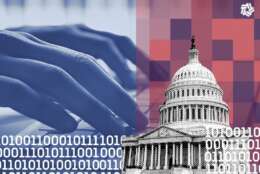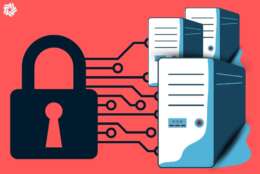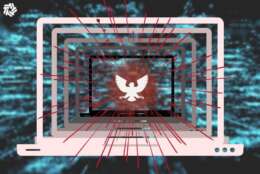National Institute of Standards and Technology
-
Everyone knows data is the essential element in improving government operations, understanding trends in the world, and solving big problems. Yet sometimes data can reveal too much, like people's personal information. That is why data sets have to undergo what is known as de-identification.
March 17, 2023 -
The Biden administration's national cyber strategy, which came out last week, puts a lot of responsibility on industry. It has a hefty rule-making and legislative agenda to support that.
March 07, 2023 -
Homeland Security officials this year will test the extent to which software can verify the authenticity of an ID based off just a smartphone photo and then correctly match an individual in a “selfie” to the photo ID.
March 07, 2023 -
A cybersecurity catastrophe appears to be brewing. Kaniah Konkoly-Thege points to several signs out there that don't bode well for critical data or critical infrastructure.
February 21, 2023 -
NIST is updating its Cybersecurity Framework for the first time in five years, and there's a new focus on "governance" and other emerging cyber issues.
February 16, 2023 -
A new study found NIST is losing equipment and research hours due to run down buildings that require deferred maintenance.
February 10, 2023 -
It might be the biggest thing in computing since the microprocessor. But quantum computing doesn't come with guaranteed security. Among the challenges, developing cryptography algorithms that resist quantum computing.
February 02, 2023 -
In today's Federal Newscast the Federal Acquisition Security Council is developing a scorecard to help assess governmentwide supply chain security readiness.
February 01, 2023 -
CISA's new office is looking to move beyond guidance and policies to help agencies move out on security their IT supply chains.
January 30, 2023 -
NIST is rolling out new, voluntary rules of the road for what responsible use of AI looks like for many U.S. industries.
January 27, 2023 -
The Federal Trade Commission has proposed a rule to ban non-compete employee contractors. Federal services contractors are decidedly not of one mind on this issue.
January 24, 2023 -
In today's Federal Newscast, the National Institute of Standards and Technology has new guidance for federal agencies that need to reduce privacy risks in giant sets of data.
December 29, 2022 -
As most have heard by now, the Office of Management and Budget recently issued new cybersecurity guidance as a follow-up to the Biden administration’s executive order from May of last year.
December 27, 2022 -
OMB releases new deadlines and guidance for agencies to prepare for quantum computers capable of breaking current encryption techniques.
November 18, 2022 -
Information technology will remain a top management challenge for the Office of Personnel Management during fiscal 2023, according to the agency's Office of Inspector General.
November 11, 2022














